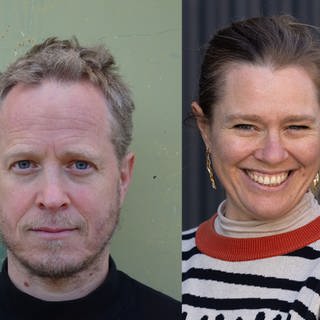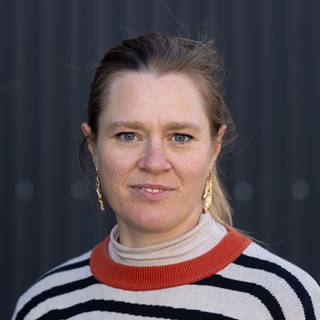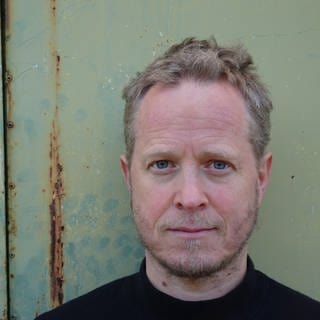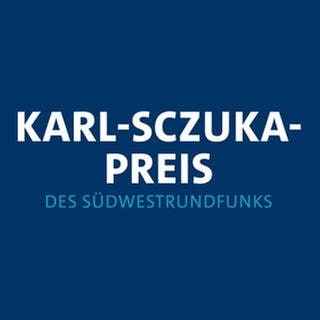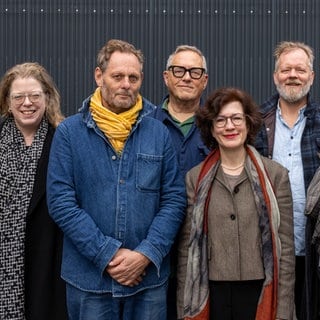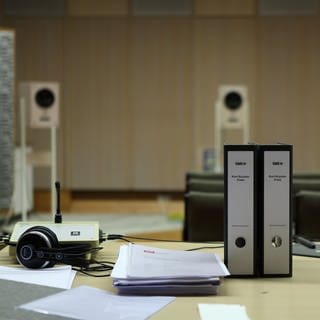Leona Jones has been awarded the 2,500 euro grant prize. The prize includes the opportunity to work on a two-week production in a radio play studio at Südwestrundfunk.
VOICES approach / LISTENinnn / near~er ssssPRING into SPEECH transmit pass on>>> Each Successive Perhaps pass on>>> messages{constructions} s s s seep through drrdrrdrrdrip~in WORDS drrdrrdrrdrop~in WORDS
The 2-channel version of babblesnatch submitted to the Karl Sczuka Prize is a compacting of its 8-channel audio installation version which is designed to play in a lowlight space where listeners can wander or be still between loudspeakers as the space comes alive with sounds.
The work is an abstract montage entirely created from Leona’s audio recordings of two voices performing an original script (a text for our fast-changing times). The recordings were then used both as unmanipulated and digitally manipulated sound to create sonic colour, texture, vertical time, sense and nonsense. The work cracks open conventional language to create a «snowglobe» of cascading, undulating, rebounding sound as voices dart and fly, recognisable words erupting from aggregated clamour to take on significances listeners have to decide for themselves. The work invites listeners to use their imagination and consider what it might be like to experience the usually non-audible digital voices and moods enveloping us.
During the Covid pandemic lockdown Leona and her mentor Dr Caroline Wilkins had long-distance discussions about the rush on-line and the torrent of digital information forced to substitute for so much previously gained from live events and gatherings. Everyone virtually listened to and watched each other even more than previously, creating an overwhelming digital infostorm. Caroline and Leona’s conversations followed many paths, for instance: Does digital technology enable an ever-expanding world of increased freedom and power? Is increased democracy merely an illusion as sophisticated chains of mis/information have been created? Can individuals protect themselves from being rendered inert by overload?
Big questions. Questions that generated babblesnatch. Of course, the work cannot provide definitive answers to such dilemmas. However, along with its offer of an immersive listening experience it endeavours to raise explorations of everyday social media life, sparking debate around tensions such as surveillance and mental health, the corporate and personal, community and callousness, and mis/information. Listening itself is now being understood as a holistic act, a back and forth between listeners, rebounding in the wider socio-political context. «…to be listening is to be at the same time inside and outside» (Jean-Luc Nancy, 2009, Listening). The lazy binary of active speaking and passive listening is being questioned and analysed. There’s a concern not just for sound and listening, but for what it might mean for someone or something to be listened to. Importantly, as part of this movement, babblesnatch embraces sound and listening as art forms, placing them centre stage. It celebrates our capacity to go beyond what is visible – so critical in a digital world where fact increasingly downplays the importance of communal experiential life – and seeks to rebalance the dominant bias of eye over ear.
The basis of babblesnatch was a performance script published as part of an essay The Panacousticon in Journal of Performance Philosophy (2016) by Dr Caroline Wilkins which was later adapted by Leona to create the recording script for babblesnatch. VOICES & WORDS: Caroline Wilkins & Leona Jones
About Leona Jones
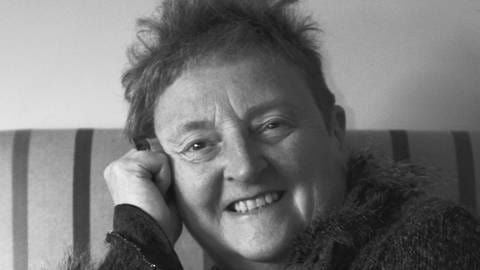
Leona Jones creates experimental performances/ installations centered on language, voice and sound. Using location recordings and site-responsiveness, she actively seeks to highlight physicality and context. Cross-disciplinary collaboration is central to her practice and she’s worked with performers, musicians, visual artists, the public and academics. She makes a concerted effort to reach into an audience’s imagination, encouraging their ability to listen. She believes active listening to be vital to a healthy society.
Her works have been presented in galleries, but are just as likely to be discovered responding to spaces not usually associated with the arts. Awarded an MA in Performance Writing (an experimental field exploring how language interacts with other art forms) her work has been supported by Arts Councils UK as well as individual organizations. Previous working life has included being a producer at BBC Radio Wales and producing/presenting a program on a community radio station. She is based in Cardiff, Wales

